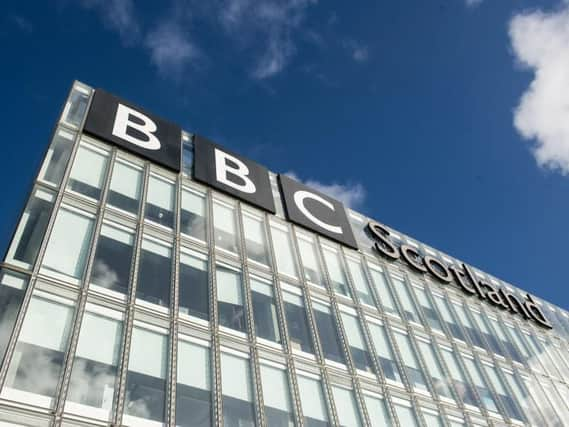Scots 'dissatisfied' with portrayal on BBC, regulator warns


Ofcom said that the BBC "may not be sustainable in its current form" and is risking a 'lost generation' - if it fails to regain younger audiences who are increasingly tuning out of its services. It added that older women and those from lower socio-economic groups also feel unhappy with their portrayal on BBC television.
Ofcom’s annual report on the BBC, published today, assesses the corporation’s performance over the period from April last year to March, after speaking to broadcasters, newspaper groups, media journalists, professional bodies and academics – as well as Ofcom’s advisory bodies in each of the UK nations.
Advertisement
Hide AdAdvertisement
Hide AdIt said that while the BBC is generally serving viewers and listeners well, it is "vulnerable" to a rapidly changing media landscape which it needs to tackle - or lose a generation of potential licence-fee payers.
Viewers in Scotland, Wales and Northern Ireland were described as "critical of the way in which the BBC represented stories that related to their lives in its UK news coverage" - although it pointed out that the organisation was better than its competitors at marking out differences between public policy on devolved matters. Of the stories analysed by Ofcom where a difference could have been noted in the devolved nations, only 45.4 per cent did so.
It said: "This was most prevalent on issues of devolved policy areas, such as education and health, which affect audiences differently across each nation of the UK. They felt that the difference was often not recognised at all, or only briefly mentioned at the end of a news story as an afterthought."
The report added: "BBC News is seen by some as representing a white, middle class and London-centric point of view that is not relevant to their lives. The BBC’s heritage and longevity can inspire trust, but we also heard the BBC described as Westminster-focused and speaking for, and to, a small section of society. Some viewers told us they see the BBC’s television bulletins as stuffy and limited in range. The perceived lack of diversity in BBC reporters and presenters, or the lack of different viewpoints, was also raised by people from minority ethnic backgrounds."
Last year, for the first time, less than half of young people aged 16-24 tuned into BBC TV channels in an average week. People aged 16-34 spent an average of one hour and 12 minutes with the BBC every day – five minutes less than the previous year, and half as much time as audiences overall. It warned that after several years of stability, the proportion of children aged 4-6 who watch CBeebies each week fell, from 39 per cent to 34 per cent.
The regulator said that the BBC must do "much more" to connect with today’s children and younger adults – through relevant, appealing, and well-placed content - despite attempts to engage and retain younger audiences by launching BBC Sounds and making programmes available for longer on iPlayer.
Sharon White, Ofcom chief executive, said: “The BBC is still a vital, valued part of British culture. But we’re concerned that a new generation is tuning out of its services. So the BBC must set out bolder plans to connect with younger viewers and listeners.
“We also want the BBC to broaden the appeal of its news, which some viewers and listeners feel isn’t relevant to their lives. And the BBC must find ways to be more distinctive online, where our research shows younger people are passing it by.”
Advertisement
Hide AdAdvertisement
Hide AdThe report praised the BBC for continuing to perform well on editorial standards and output. It said in the vast majority of cases Ofcom considered during the year, the BBC was meeting the standards of Ofcom’s Broadcasting Code, as well as its regulatory conditions.
A BBC spokeswoman said: “Improving the way we represent and portray the nations and regions of the UK has been a priority for the BBC. As Ofcom’s report only covers until March 2019, it doesn’t include the full impact of the BBC Scotland Channel which is playing a vital role in reaching unique and younger audiences in Scotland.
"While there’s still more to do, we are also pleased to see that Ofcom found audiences in Scotland say they are increasingly seeing themselves authentically portrayed in BBC content, as well as content that authentically portrays the life and culture of different communities throughout the UK.”
She added: “The BBC has a clear plan in place to meet the needs of younger and diverse audiences, outlined in this year’s Annual Plan. It is focused on BBC iPlayer, BBC Sounds and BBC News Online. All three have grown strongly in the last year. So our plan is clearly working. But we want to do even more for young and diverse audiences and we will set out our next steps in our upcoming Annual Plan."